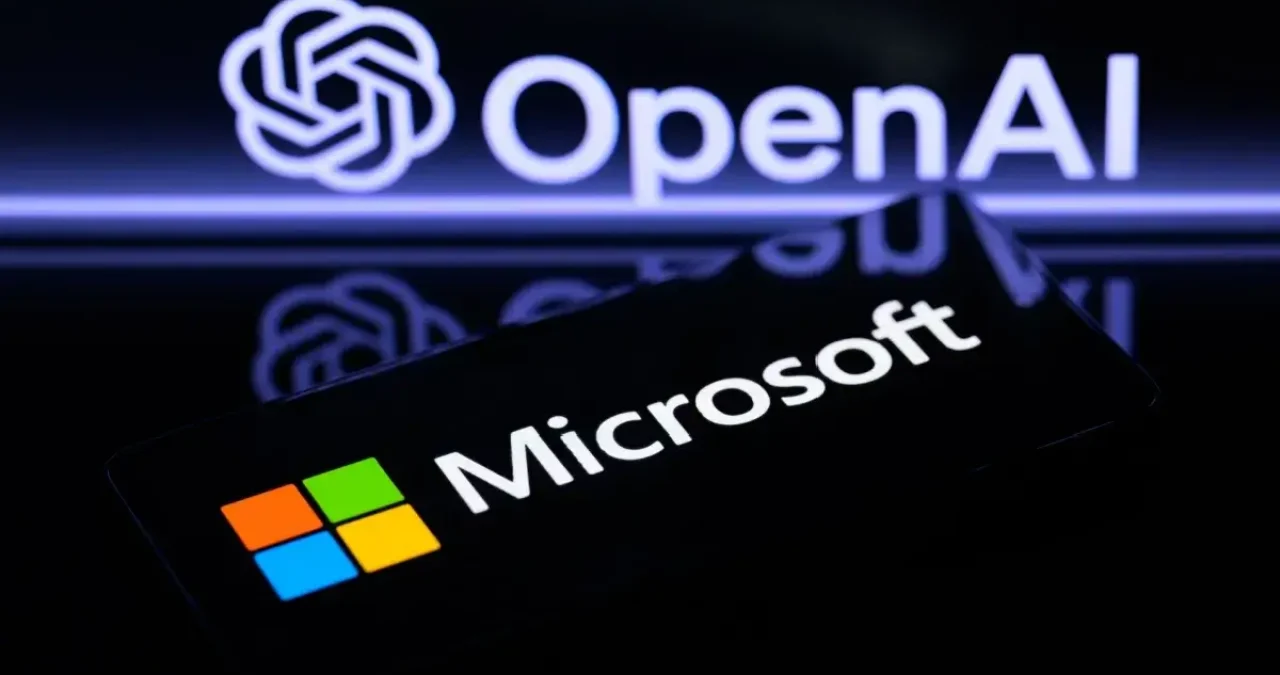Microsoft No Longer Exclusive Cloud Provider for OpenAI: A New Era of Collaboration
OpenAI opens the door to new cloud partnerships, enhancing flexibility and innovation in AI development.

Microsoft Loses Exclusivity as OpenAI’s Cloud Provider
In a significant shift, Microsoft is no longer the sole provider of cloud infrastructure for OpenAI’s groundbreaking AI models. This development marks a turning point in their partnership, redefining how OpenAI leverages cloud computing to support its ambitious AI advancements.
The announcement comes alongside OpenAI’s introduction of Stargate, a colossal AI infrastructure deal involving tech giants like SoftBank and Oracle, among others. Microsoft has signed a new agreement with OpenAI, securing a “right of first refusal” on future cloud computing needs. This means that while Microsoft gets the first chance to host OpenAI’s AI workloads, OpenAI now has the freedom to explore alternatives if Microsoft can’t fulfill its capacity requirements.
Microsoft’s Renewed Commitment to OpenAI
Despite losing exclusivity, Microsoft continues to play a pivotal role in OpenAI’s operations. According to a Microsoft blog post, OpenAI has committed to a new, substantial Azure investment. This agreement will not only support OpenAI’s existing suite of products but also enable further training and research on advanced AI models.
To address OpenAI’s increasing demand for computational power, Microsoft has granted the company the flexibility to establish additional infrastructure. This move primarily focuses on facilitating research and scaling operations, ensuring OpenAI’s capacity to develop state-of-the-art AI systems.
Tensions Over Compute Power
The relationship between Microsoft and OpenAI has reportedly faced challenges due to compute limitations. OpenAI has cited a shortage of computational resources as a major bottleneck for launching new products. The tension came to a head in mid-2023 when Microsoft, under pressure from its shareholders, allowed OpenAI to enter into a separate agreement with Oracle for additional capacity.
Despite these challenges, both companies emphasize their continued collaboration. Microsoft confirmed that key elements of their partnership—spanning intellectual property rights, revenue-sharing models, and exclusive access to OpenAI’s APIs—remain intact through 2030.
The AGI Clause
One particularly intriguing aspect of the Microsoft-OpenAI partnership is the clause tied to artificial general intelligence (AGI). If OpenAI achieves AGI, defined as AI systems capable of generating at least $100 billion in profits, Microsoft would lose access to the company’s technology under their current agreement.
Reports suggest that OpenAI is considering renegotiating or even nullifying parts of this agreement, potentially seeking more funding from Microsoft. Such a move could further reshape the dynamics between the two tech giants.
Azure’s Role in the OpenAI Ecosystem
For now, Microsoft’s Azure remains a central pillar in OpenAI’s operations. The OpenAI API is exclusively hosted on Azure, runs on its infrastructure, and is available to customers via the Azure OpenAI Service. This arrangement ensures that businesses can access OpenAI’s leading AI models through Microsoft’s robust cloud platform, enhancing both accessibility and scalability.
Microsoft’s blog post highlights the mutual benefits of this partnership:
“This agreement means customers benefit from having access to leading models on Microsoft platforms and directly from OpenAI.”
What’s Next for OpenAI and Microsoft?
As OpenAI continues to push the boundaries of AI innovation, its decision to expand beyond Microsoft’s cloud infrastructure underscores its growing ambitions. The inclusion of multiple cloud providers, such as Oracle, SoftBank, and others, positions OpenAI to scale operations and address computational bottlenecks more effectively.
Meanwhile, Microsoft remains deeply invested in OpenAI’s success, both financially and strategically. The tech giant’s “right of first refusal” ensures it retains a significant stake in OpenAI’s future, even as the AI company diversifies its partnerships.
This evolving relationship signals a broader trend in the tech industry: collaboration, not exclusivity, is becoming the norm. For businesses and developers leveraging OpenAI’s APIs, this means enhanced reliability, better performance, and access to a wider range of cloud resources.
The redefinition of the Microsoft-OpenAI partnership reflects the ever-changing landscape of artificial intelligence. By embracing a multi-provider strategy, OpenAI is setting itself up for sustained growth and innovation. Meanwhile, Microsoft’s ongoing involvement ensures it remains a key player in the AI revolution.
Stay tuned for more updates on this dynamic partnership and the latest in AI innovation by visiting Trendsnip.



